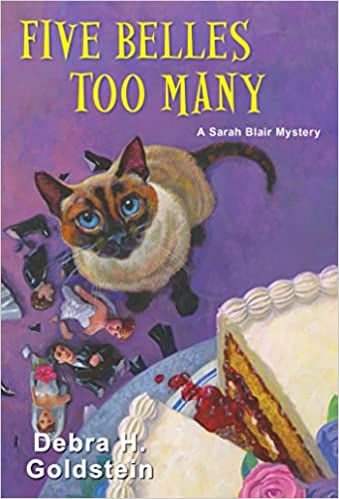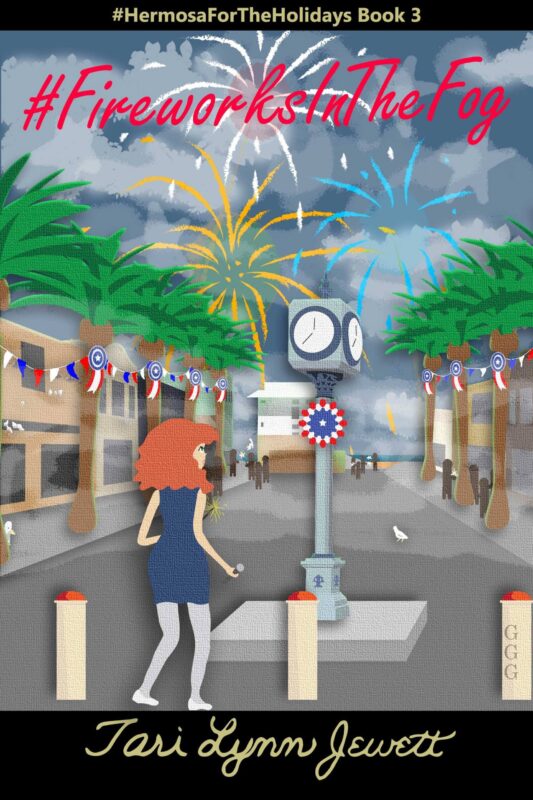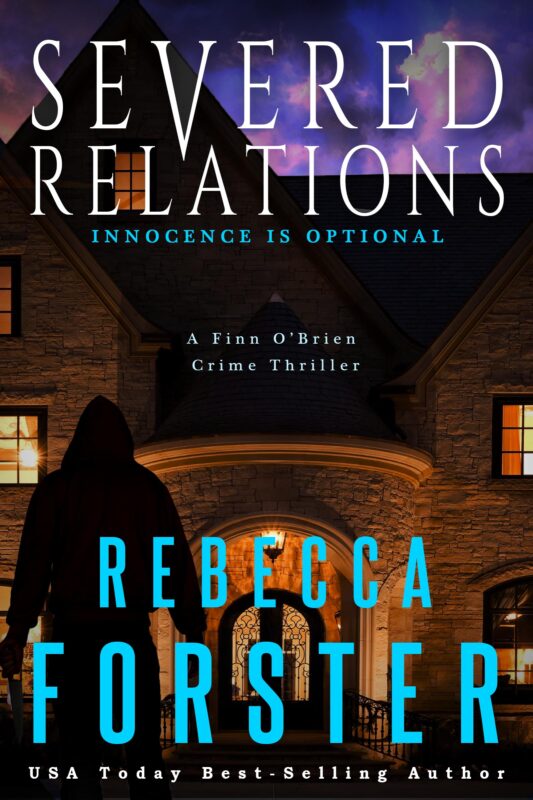Newton’s First by Stephanie Burk and Areana Senoj
July 31, 2024 by marianne h donley in category Apples & Oranges by Marianne H. Donley, Rabt Book Tours, Spotlight tagged as Areana Senoj, cyberpunk, Cyperpunk, Motherboards & Magic, new release, Stephanie Burke
A Cyberpunk Novel
Motherboards & Magic, Book 1
Cyberpunk / Science Fiction
Date Published: August 2, 2024
Newton’s First Law: An object in motion remains in motion. Until an outside force screws it all up.
As a grieving child in a burned-out husk of a body, Asher Syphamus was given an impersonal room within the Company’s cold labs–until he was offered a second chance with illegal and painful cybernetic augmentations. Now, after many decades of martial arts training and mental conditioning, Ash is the all powerful DPL’s top agent and never misses a target. Along with his beautiful, hyper-sexed purple partner, Vers, the unstoppable duo hunts down the most dangerous hackers and criminals for punishment or elimination.
Korya Funo is full of privileged DPL information downloaded into her brain. If caught, she would be deleted from the census. That keeps her running–until her luck runs out in Paradise, Nevada. When she’s captured by Ash and Vers, Korya accidentally reveals the truth about Asher’s parents’ deaths, and then all hell breaks loose.
Now with all their lives on the line and the fate of the planet riding on their backs, they trio will show the world why Newton’s First Law is not to be screwed with.
About the Authors
Stephanie Burke is a USA Today Best Selling, multi published, multi award-winning author, Master Costumer, handicapped, wife and mother of two.
From sex-shifting, shape-shifting dragons to undersea worlds, sexually confused elemental Fey and homo-erotic mysteries, all the way to pastel-challenged urban sprites, Stephanie has done it all, and hopes to do
more.
Stephanie is an orator on her favorite subjects of writing and world-building, a sometime teacher when you feed her enough tea and donuts, an anime nut, a costumer, and a frequent guest of various sci-fi and writing cons where she can be found leading panel discussions or researching varied legends and theories to improve her writing skills.
Stephanie is known for her love of the outrageous, strong female characters, believable worlds, male characters filled with depth, and multi-cultural stories that make the reader sit up and take notice.
Author on Facebook
Author on Twitter
Areana Senoj is a multi-genre writer of erotic romance, paranormal, and sci-fi fantasy fiction. She’s been an actress, singer, dancer, educator, and, briefly, a stay-at-home “tennis, soccer, and band mom,” as well as a small business entrepreneur. Now she’s enjoying a new career living life as a full-time writer. She’s thrilled to join Changeling
Press, where she’s teamed up with USA Today Best Selling Author Stephanie Burke, co-authoring Motherboards and Magic.
Author’s Blog
Author on Facebook
Author on Twitter
Publisher on Facebook, Instagram, Twitter, and TikTok: @changelingpress
The Clue in the Weathered Hardback
July 30, 2024 by Dianna Sinovic in category Columns, Quill and Moss by Dianna Sinovic, Writing tagged as mystery, Nancy Drew, short fiction, writing
Emma worked her way through the tables of used books laid out at a community fair in Bucks County. Books! As if she didn’t have enough of them on her bookcases and her bedside table. Balancing an armful of books—mysteries, a literary classic, two romances—she spied a familiar cover.
“It’s a Nancy Drew.” She smiled at the memory. Her mother had bequeathed her small collection to Emma, who only skimmed them—too dated for her. But she had kept a few of the titles, mostly as a reminder of her mother, who had passed on three years before.
The book, The Secret in the Old Attic, was not one she’d read. Picking it up, mostly out of curiosity, not out of a desire to buy it, Emma opened the cover to leaf through it. Instead of a full complement of pages, though, the interior was carved out to make a book safe. Within the safe lay a folded slip of paper. She smoothed out the slip. On it, in spidery handwriting: IOU.
Fascinated at the clever use of the book, Emma added it to her stack of purchases and left the sale with the bag of used volumes.
At home, she googled the topic and learned that book safes had long been a common way to hide valuables, including money. As long as you remembered which books you’d carved up, no one else would be the wiser as they perused your shelves, either as a guest or a thief.
Lured by the information, she tucked away fifty dollars in the Nancy Drew book and slipped it onto the bookshelf in her living room. An experiment, she told herself. On a run to her public library after work several weeks later Emma remembered the book safe when she passed by the children’s section on her way to the checkout.
She pulled it from the shelf when she returned home and popped it open. The bills had vanished; in their place sat a folded slip of paper. It was identical to the one she’d seen earlier, at the sale, down to the faintly creepy message.
Feeling her pulse flutter in alarm, she dropped the book and the paper. WTF? She spun in a circle to take in the room. It was empty, as was the rest of her modest ranch, but she shivered. Who had been there? And when?
As the moments ticked past, she felt silly. I must have left the slip in the book when I brought it home. As for the money, maybe she’d imagined placing it there.
“Let me try again,” she said aloud to break the spell that seemed to keep her feet glued to the floor. Digging in her wallet, she pulled out two twenties, folded them in half and dropped them into the book safe. She tossed the IOU into the recycle bin.
This time she marked her calendar: Check in one week. Determined to solve the mystery—was she now Nancy Drew?—she set up a surveillance camera aimed at the bookshelf. If there was a thief—but there couldn’t be!—the camera would capture the culprit.
When the week had crawled by, Emma eagerly jerked the book from the shelf, then hesitated. The camera hadn’t caught any strangers in her home. What would the book reveal?
Inside the safe, the same slip of paper beckoned her to unfold it. The money was gone.
“Dammit,” she said, frustration coloring her expletive. Staring at the open book for a few moments, she hit on a solution. Two can play this game. She lay the paper slip on the kitchen table, found a pen, and printed neatly: You owe me ninety bucks. Pay up! With the refolded slip back in the book safe, Emma once again reshelved the hardback.
Barely twenty-four hours passed before Emma succumbed to temptation and pulled out the book. She laughed in surprise. No more notes; the safe contained ninety dollars in crisp bills—a fifty and two twenties—all neatly folded in half.
The cycle, she decided, had ended. She would keep the Nancy Drew book, but forgo putting anything into the paper safe, lest the mystery of the borrower be reactivated.
It was later, as she sat on the couch watching an episode of Stranger Things, that she looked at the returned cash more closely. She switched off the TV and turned on a lamp to inspect. The bills felt and looked authentic—the texture, the watermark, the colors shifting in the numerals—but the portraits . . . She struggled to remember who should be there. Jefferson? Jackson? She was fairly sure a guy named McCall wasn’t one of them. She turned the bills over. On the back, although each building was identified by caption, neither the Capitol nor the White House looked familiar.
The biggest, most obvious difference stared right at her. She ran a finger along the banner words above the buildings: United Territories of America.
More of Dianna’s stories can be found in the following anthologies:
Alina K. Field July Featured Author
July 28, 2024 by marianne h donley in category Featured Author, Featured Author of the Month tagged as Alina K. Field, Featured Author of the Month, Regency Romances

Award winning author Alina K. Field earned a Bachelor of Arts Degree in English and German literature, but her true passion is the much happier world of romance fiction. Though her roots are in the Midwest, after six very, very, very cold years in Chicago, she moved to Southern California where she shares a midcentury home with two furry four-legged girls and keeps a dependable stash of lollipops for the munchkins in her life.
She is the author of several Regency romances, including the 2014 Book Buyer’s Best winner, Rosalyn’s Ring. She is hard at work on her next series of Regency romances, but loves to hear from readers!
Visit Alina
In addition to Quarter Days, Alina’s quarterly column’s on A Slice of Orange, you can visit her at:
Books by Alina K. Field
Sanctuary by Neetu
July 26, 2024 by Neetu Malik in category Poet's Day by Neetu Malik tagged as Neetu, quiet room, sanctuary, sleep
Sanctuary
my room
a sanctuary
at the end of the day
sound of dying traffic
and a deep silence
settling in
I exhale
the fumes and frustration
prepare for sleep
all it takes
to remember tomorrow’s list
forget things I don’t need
is to remind myself
nothing lasts forever
not even pain, however deep
© Neetu Malik
Some of Neetu’s Books
Obsession by Kidd Wadsworth
July 25, 2024 by Kidd Wadsworth in category Infused with Meaning by Kidd Wadsworth tagged as Obsession, poetry, trusses, words
Obsession is my natural state.
As an undergraduate in Electrical Engineering at Texas A&M University, I was required to take a Mechanical Engineering course where we analyzed the forces in a truss. Trusses, often triangular networks of beams, are commonly found in bridges. As I recall the course material now, some 40 years later, there were two methods of analyses. I had been intently studying those methods for an upcoming test, when I closed my books and went to bed to catch some z’s. Immediately, I began to dream about trusses. In my dream there appeared two beams. As I, with great speed, analyzed the forces in each beam, the beams themselves, like some terrible organic disease, reproduced. Suddenly, there were four beams. Terrified, I worked even faster, but the beams again reproduced. Now there were eight. Pencil flying, I analyzed. Sixteen beams.
Thankfully, my roommate shook me awake. “You’re mumbling,” she said. “Are you okay?”
I have no idea what I replied. But when I closed my eyes, two beams appeared. I began my calculations. Ut oh. Four beams. Eight beams. Sixteen beams. Thirty-two beams.
She shook me awake again. Understanding it wasn’t real, I cried out, “There is no truss!”
Yes, she thought I was nuts, but I did manage to sleep without that nightmare returning.
Years earlier, at thirteen, I had discovered poetry. I remember jotting down lines of verse on any scrap piece of paper I could find. When I was sixteen, and got my driver’s license, my mom sent me all over Dallas running errands. (Yes, I loved it.) One evening, flying home on the freeway, I pondered the word “mobile.”
I pronounce this word with a short ‘i’, like the gas station, or a child’s toy hung over the crib. Thus, it is nearly impossible to stop the word from leaving the palate quickly. As I drove, through the mix-master and across the city of Dallas, I repeated the word “mobile”. Mobile. Mobile. Mobile.
I was in love with words.
Somehow, when I wasn’t paying attention, when I didn’t realize what I was losing, I abandoned my love of words and my love of poetry. Perhaps I was too busy pursuing romantic love or trying to analyze trusses. But now, years later my obsession with the sound of words, and all things poetry, has returned.
Consider the word, “blink”. Say it out loud. “Blink”. Notice how the hard “b” at the beginning and the hard “k” at the end are like clicking switches. So that the word “blink” turns on with the “b” sound and turns off with the “k” sound. Great word, “blink”.
And yes, I’m entering poetry contests. Not once, but as many times as allowed.
This could get expensive.
I’m obsessed. And I don’t mind. I’m dreaming about poetry. (It is infinitely better than dreaming about trusses.) I’m waking up in the middle of the night and scribbling down lines. And no, I don’t want it to stop. My mind has gone down a rabbit hole.
Pour the tea. I can handle the Queen of Hearts. I love it here.
–Kidd
Hey, have you ever thought about the words effervescence and quiescence? Go on, say them fifteen times. I LOVE WORDS!!!
Some of Kidd’s stories are in the following anthologies:
Affiliate Links
A Slice of Orange is an affiliate with some of the booksellers listed on this website, including Barnes & Nobel, Books A Million, iBooks, Kobo, and Smashwords. This means A Slice of Orange may earn a small advertising fee from sales made through the links used on this website. There are reminders of these affiliate links on the pages for individual books.
Search A Slice of Orange
Find a Column
Archives
Featured Books
SEASON’S READINGS: More Sweet, Funny, and Strange Holiday Tales
We hope you enjoy these holiday gifts.
More info →FIVE BELLES TOO MANY
When Sarah Blair’s mother participates in a reality show competition for brides in Wheaton, Alabama, things get a little too real as a murderer crashes the wedding party . . .
More info →#FIREWORKS IN THE FOG
So, you’d like to become a social media star…
More info →SEVERED RELATIONS
Detective Finn O'Brien catches the call: two kids and their nanny are dead behind the gates of Freemont Place.
More info →Newsletter
Contributing Authors
Search A Slice of Orange
Find a Column
Archives
Authors in the Bookstore
- A. E. Decker
- A. J. Scudiere
- A.J. Sidransky
- Abby Collette
- Alanna Lucus
- Albert Marrin
- Alice Duncan
- Alina K. Field
- Alison Green Myers
- Andi Lawrencovna
- Andrew C Raiford
- Angela Pryce
- Aviva Vaughn
- Barbara Ankrum
- Bethlehem Writers Group, LLC
- Carol L. Wright
- Celeste Barclay
- Christina Alexandra
- Christopher D. Ochs
- Claire Davon
- Claire Naden
- Courtnee Turner Hoyle
- Courtney Annicchiarico
- D. Lieber
- Daniel V. Meier Jr.
- Debra Dixon
- Debra H. Goldstein
- Debra Holland
- Dee Ann Palmer
- Denise M. Colby
- Diane Benefiel
- Diane Sismour
- Dianna Sinovic
- DT Krippene
- E.B. Dawson
- Emilie Dallaire
- Emily Brightwell
- Emily PW Murphy
- Fae Rowen
- Faith L. Justice
- Frances Amati
- Geralyn Corcillo
- Glynnis Campbell
- Greg Jolley
- H. O. Charles
- Jaclyn Roché
- Jacqueline Diamond
- Janet Lynn and Will Zeilinger
- Jaya Mehta
- Jeff Baird
- Jenna Barwin
- Jenne Kern
- Jennifer D. Bokal
- Jennifer Lyon
- Jerome W. McFadden
- Jill Piscitello
- Jina Bacarr
- Jo A. Hiestand
- Jodi Bogert
- Jolina Petersheim
- Jonathan Maberry
- Joy Allyson
- Judy Duarte
- Justin Murphy
- Justine Davis
- Kat Martin
- Kidd Wadsworth
- Kitty Bucholtz
- Kristy Tate
- Larry Deibert
- Larry Hamilton
- Laura Drake
- Laurie Stevens
- Leslie Knowles
- Li-Ying Lundquist
- Linda Carroll-Bradd
- Linda Lappin
- Linda McLaughlin
- Linda O. Johnston
- Lisa Preston
- Lolo Paige
- Loran Holt
- Lynette M. Burrows
- Lyssa Kay Adams
- Madeline Ash
- Margarita Engle
- Marguerite Quantaine
- Marianne H. Donley
- Mary Castillo
- Maureen Klovers
- Megan Haskell
- Melanie Waterbury
- Melisa Rivero
- Melissa Chambers
- Melodie Winawer
- Meriam Wilhelm
- Mikel J. Wilson
- Mindy Neff
- Monica McCabe
- Nancy Brashear
- Neetu Malik
- Nikki Prince
- Once Upon Anthologies
- Paula Gail Benson
- Penny Reid
- Peter Barbour
- Priscilla Oliveras
- R. H. Kohno
- Rachel Hailey
- Ralph Hieb
- Ramcy Diek
- Ransom Stephens
- Rebecca Forster
- Renae Wrich
- Roxy Matthews
- Ryder Hunte Clancy
- Sally Paradysz
- Sheila Colón-Bagley
- Simone de Muñoz
- Sophie Barnes
- Susan Kaye Quinn
- Susan Lynn Meyer
- Susan Squires
- T. D. Fox
- Tara C. Allred
- Tara Lain
- Tari Lynn Jewett
- Terri Osburn
- Tracy Reed
- Vera Jane Cook
- Vicki Crum
- Writing Something Romantic
Affiliate Links
A Slice of Orange is an affiliate with some of the booksellers listed on this website, including Barnes & Nobel, Books A Million, iBooks, Kobo, and Smashwords. This means A Slice of Orange may earn a small advertising fee from sales made through the links used on this website. There are reminders of these affiliate links on the pages for individual books.


















































































